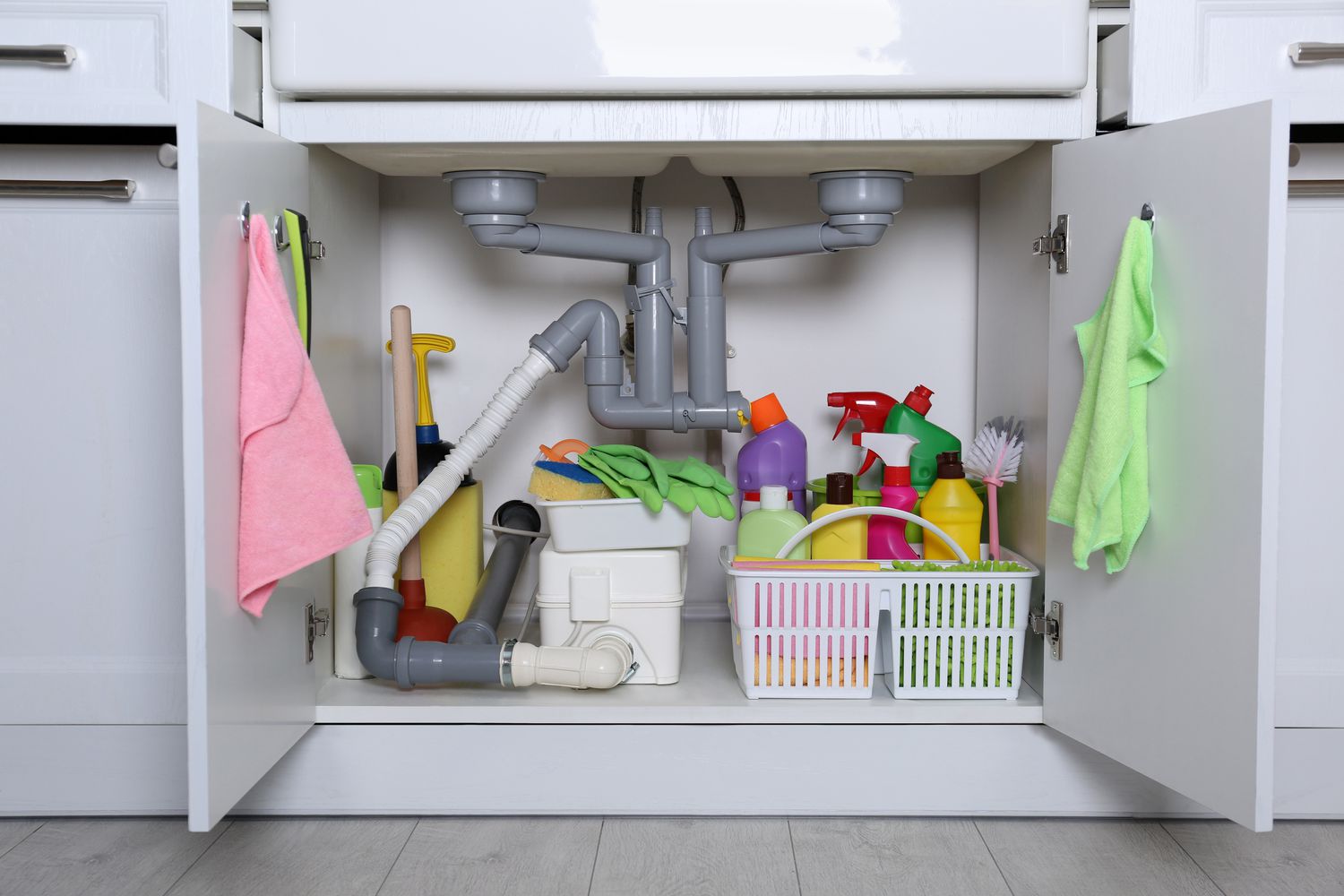For people with small kitchen space, the area under the sink may seem like a convenient storage solution, but it’s essential to consider what you place there. Your sink plumbing pipes reside in this space and are prone to moisture, making it less than ideal for several common household items.
The storage space under the sink is a seemingly innocuous area, but it presents potential problems and dangers that you should be aware of. The possible outcomes may affect not only your household items but your family’s health as well!
10 Items Not to Keep Under Sinks
Before you start piling up items in this seemingly innocuous spot, it’s crucial to consider what should never find its home under the sink.
1. Paper towels
Your sink plumbing pipes are located in the area under your skin, and it’s a space that’s prone to getting wet. Paper towels are items that will be better stored in another cabinet, where they aren’t at risk of becoming damp and less effective.
This goes for other paper products as well, such as trash or compost bags made of paper. They’re designed to biodegrade quickly, so they can easily get damaged by moisture.
2. Wooden items
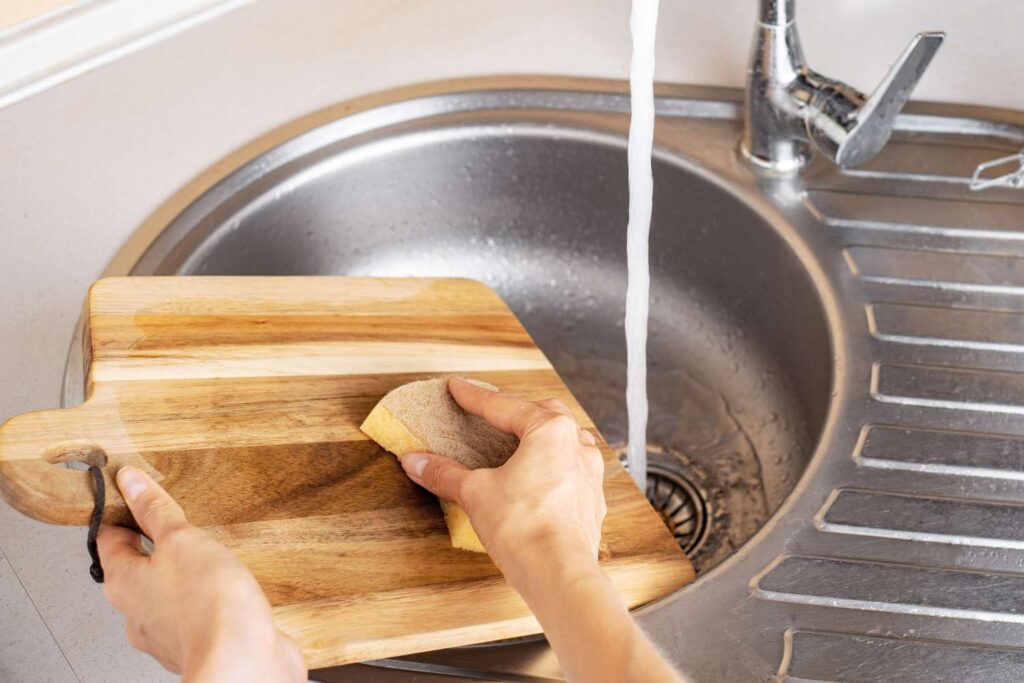
Wooden cutting boards, bamboo utensils, and other wooden kitchen items should not be stored under the sink due to moisture, which can cause warping and promote mold growth. Wooden broom handles or mop handles should also be kept away from moisture, as they can rot and weaken over time.
3. Small kitchen appliances
Small kitchen appliances like slow cookers or breadmakers should be stored away from areas prone to moisture, such as under the kitchen sink. Electronic appliances and water are a risky combination, as they can lead to electrical hazards and damage.
When exposed to moisture, these appliances can also become less reliable over time, potentially causing malfunctions. It’s advisable to find a dry and safe storage area in your kitchen, such as a designated cabinet or countertop space away from sinks and sources of water.
4. Harsh chemicals
In many households, products used for house cleaning are stored under the kitchen sink. However, according to FantasticServices.com specialists, if you have children or pets, it’s best to find another storage space for them. It’s an easy spot to access, and if ingested, these chemicals can be a huge health hazard. It’s best to keep harsh cleaners at a higher place in the kitchen, bathroom or utility closet – out of reach.
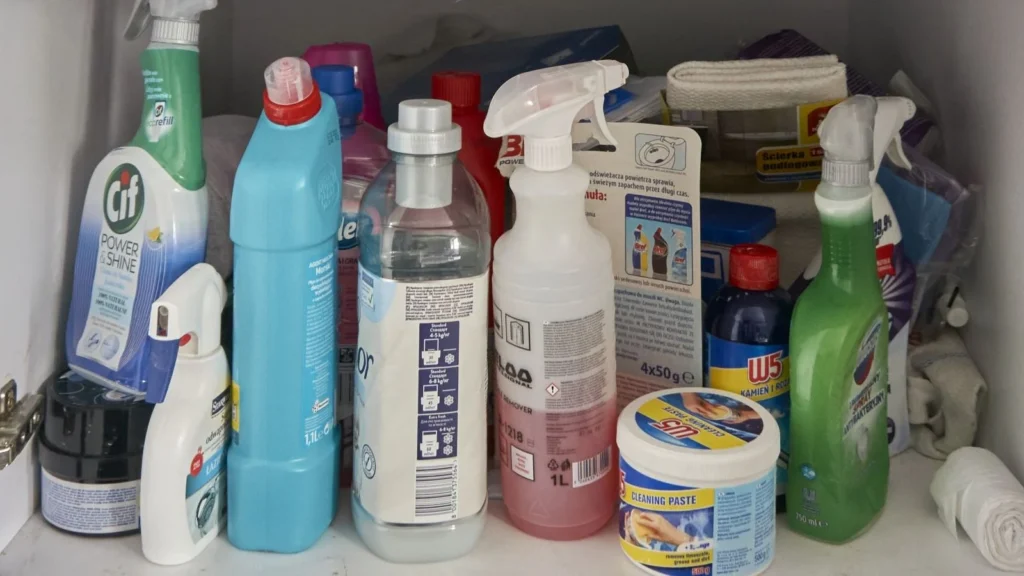
5. Insecticides
Similar to harsh chemicals, insecticides, and rat poison should be kept well out of reach of children and pets. While it might seem convenient to store these products under the kitchen sink, their accessibility in this area increases the risk of accidental exposure. Choose a safer storage location, such as a high shelf in a garage or storage room, to prevent any potential harm.
6. Dishwasher pods
While it’s tempting to store dishwasher pods under the kitchen sink for easy access, this isn’t a safe practice, especially if you have children or pets in your home. These pods can be mistaken for food items due to their appearance and may be ingested accidentally.
To prevent such incidents, consider storing dishwasher pods in a laundry room or on a high shelf that is not easily accessible to young children or curious pets.
7. Flammable products
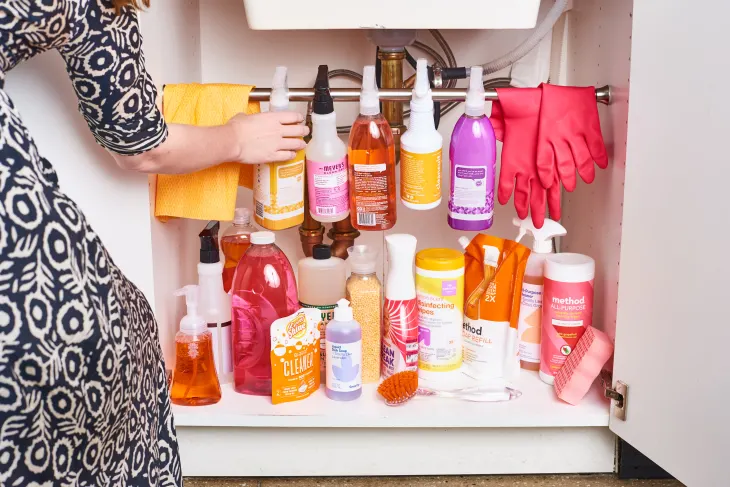
Products labeled as “flammable” should never be stored in the kitchen due to the risk of fire hazards. Flammable items, such as paint thinners, gasoline, or aerosol sprays, require a well-ventilated and designated storage area away from heat sources and open flames. The garage or an outdoor storage space is a much safer choice for these products.
8. Pet food
If you’re storing harmful chemicals under the kitchen sink, it’s essential to keep pet food in a separate spot to prevent cross-contamination and maintain its quality. Moisture can lead to the development of mold in pet food, rendering it unsafe for your pets.
To ensure your pet’s food remains fresh and uncontaminated, use tightly sealed containers and store them in a dry area, separate from potentially harmful substances.
9. Pantry items
If your storage is limited, it’s logical to use every space you can think of optimally. However, keeping cereal boxes, pasta, dried spices, potatoes, or onions in the area under your kitchen sink isn’t the best decision. Even if you don’t store cleaning products there, the moist environment isn’t ideal for food, especially dry ones that can go bad when they come in contact with water.
10. Light bulbs
If you use the area under your sink a lot because your trash bin is there, keeping stuff that is made of delicate materials like glass isn’t a good idea. They can get damaged and pose safety risks when jostled around. Light bulbs are very fragile, and it’s advisable to keep them in a spot where it’s less risky to crash.
Alternative Storage Locations and Tips
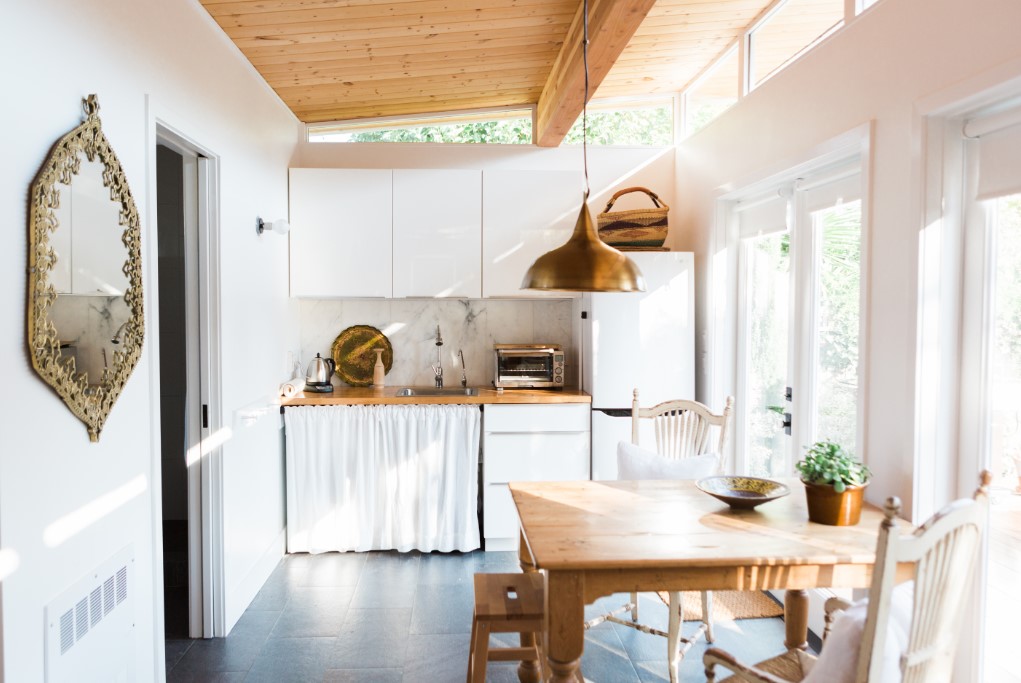
There are many storage options available besides the space under the sink. Not only can you increase your space capacity, but also keep things safe and well-organized at the same time.
- Overhead shelves – Utilize the vertical space in your kitchen by installing sturdy overhead shelves. These shelves can hold items like paper towels, light bulbs, and pantry items, keeping them out of the moisture-prone under-sink area.
- Cabinets or drawers – Invest in additional cabinets or drawers if you have the space. They provide a safe and organized storage solution for items like small kitchen appliances, wooden utensils, and pantry items, making them easily accessible and moisture-free.
- Closet or laundry room – Harsh chemicals, insecticides, dishwasher pods, and pet food can be found in a secure home in a utility closet or laundry room. These spaces are typically away from high-traffic areas and out of reach of children and pets.
- Garage – Flammable products, such as paint or gasoline, should always be stored in a well-ventilated area like the garage. Ensure they are kept in a designated storage cabinet or on a shelf away from potential heat sources.
- Sealed containers – For items like pet food and pantry items, use airtight, moisture-resistant containers. This helps prevent moisture exposure and cross-contamination, ensuring your food items stay fresh and safe.
Final thoughts
The under-sink space does look like a great option to store many of the supplies that you use for cleaning or cooking. However, the seemingly convenient area warrants careful consideration due to its susceptibility to moisture and associated hazards.
Keeping our families and homes protected is our highest duty. This is why it’s crucial to make informed decisions about where to store products and chemicals to ensure everyone’s safety. Having an organized home will ultimately help you be more efficient and productive in your home, get things done faster, and contribute to a healthier lifestyle.

